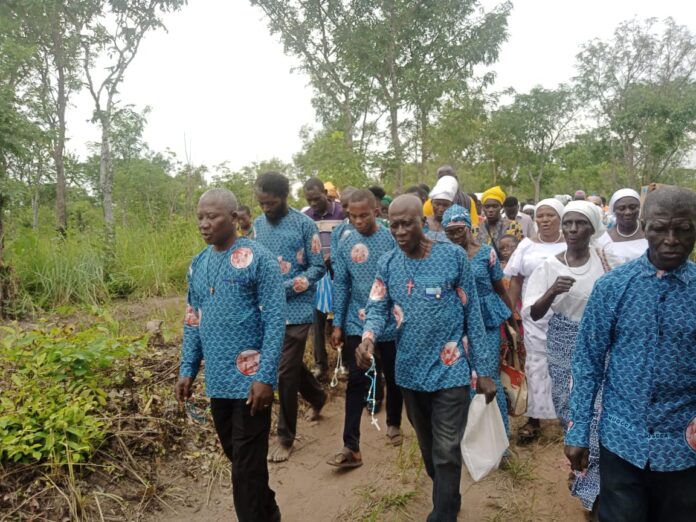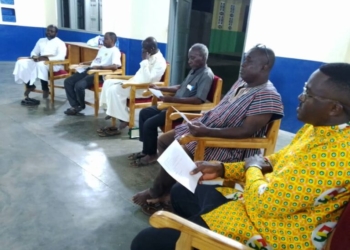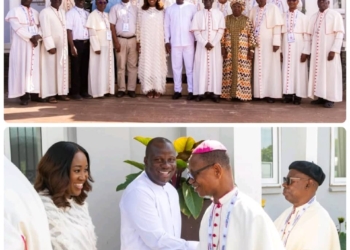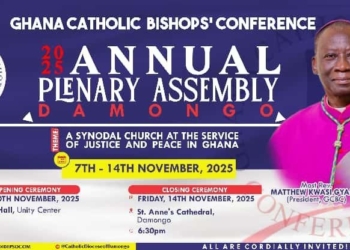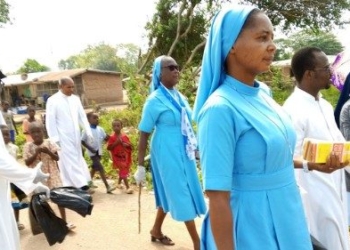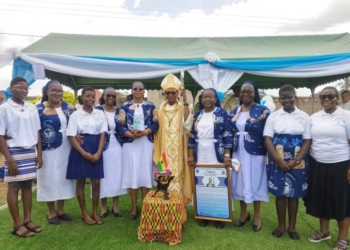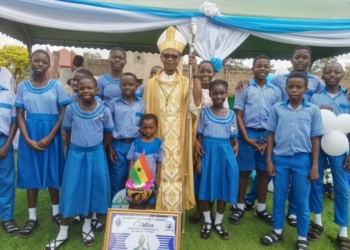In a Keynote Address read on his behalf at the Opening Ceremony of the Annual National Catechists’ Delegates Conference, at the Alfons Merten’s Centre, Donkorkrom, on August 22, 2025, he reminded the Catechists gathered from various Dioceses all over Ghana that their major activity in the catechetical ministry is teaching.
“We are the teachers of the faith; the catechetical preparation of candidates for the Sacraments of Christian Initiation is your main activity, and that is what you are most recognized for,” he emphasized in the address read for him by the Most Rev. John Alphonse Asiedu, SVD, Bishop of the Apostolic Vicariate of Donkorkrom.
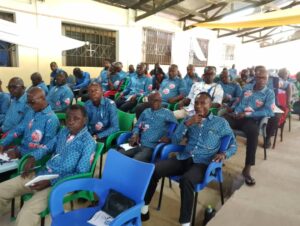
However, aware that the content of the catechesis for Christian Initiation mainly focuses on the doctrines of the Sacraments, the Episcopal Chairman wondered how the Church’s social teachings could be integrated to address topics such as caring for the environment God created and left to humankind.
In this regard, he urged the National, as well as the various Archdioceses/Dioceses, to work out relevant topics of the social teachings of the Church as part of the Catechetical instruction for the candidates for the Sacraments.
He further admonished the Diocesan Offices to collaborate with and prepare similar topics for other groups, such as the various youth groups under the umbrella of the Youth Council.
The Local Ordinary highlighted another major role of the catechist, especially in the outstations, which is liturgical presidency in the absence of the priest. “I am using the term liturgy here in the broad sense of the totality of worship activities that the lay person can lead,” he clarified.
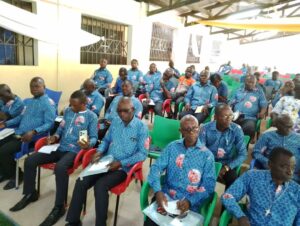
These include, but are not limited to, Sunday Service of the Word, Devotional prayers, and the celebration of sacramentals such as the Funeral Service. The catechist, in the absence of the priest, is to lead the local communities in observing these liturgical celebrations, he added.
He opined that during announcements, the Catechist could explain to the congregation the forthcoming special days/events to be celebrated, to create awareness ahead of the day, and on the said day, he/she could, in the course of the homily/reflection, touch on the teachings and practical application of the Celebration.
Bishop Atuahene strongly recommended that the local congregations, with proper planning, could put into effect the particular celebration, for instance, planting of trees on the Celebration of Arbor Day; a general cleaning around the school and Church premises as part of the World Environmental Day celebration, among other initiatives.
Present at the Opening Ceremony was Rev. Fr. Christopher Vordzogbey, National Director of Catechetics, and some Catechists’ Directors from various Dioceses, among other dignitaries.
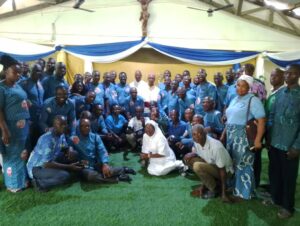
The Chief Shepherd, at the end of his presentation, he recommended that the formation of Catechists should include their exposition to the various Masses for special needs and how these are to be celebrated in the Parishes and communities.
He proposed that the National Catechetical Commission, together with the National Executive of the Catechists Association, take up the responsibility of making periodic reminders and write-ups as the environmental days are approaching, via various social media platforms of the Catechists’ Associations at various levels, including Diocesan, Deanery and Parochial.
This. according to him, would empower the Catechists to announce them, give brief catechesis (teachings), and lead the communities in the celebration of these days.
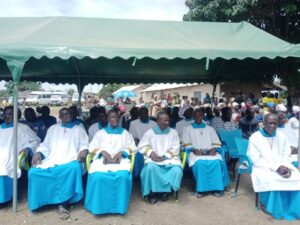
He also suggested that the Catechetical Commission and the Liturgy Commission should liaise and popularise the special celebrations that characterise Ghana’s local economic activities such as farming, fishing and the extraction of minerals such as metals, the harvesting of salt, and forest products.
“The awareness of the sacred identity of these gifts of nature, I believe, will elicit respect and preservation for future generations” he maintained.
By Sr. Sylvie Lum Cho, MSHR


